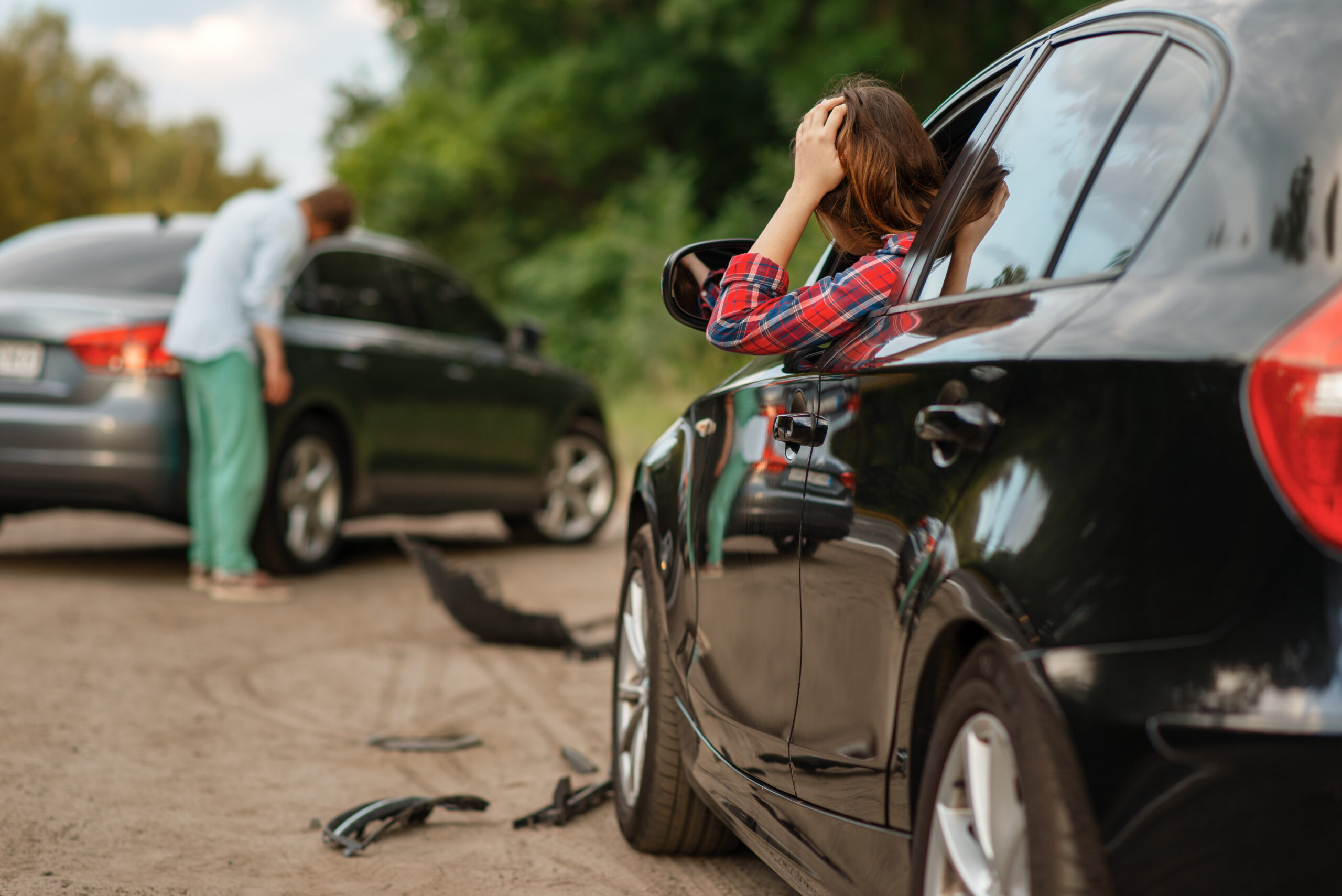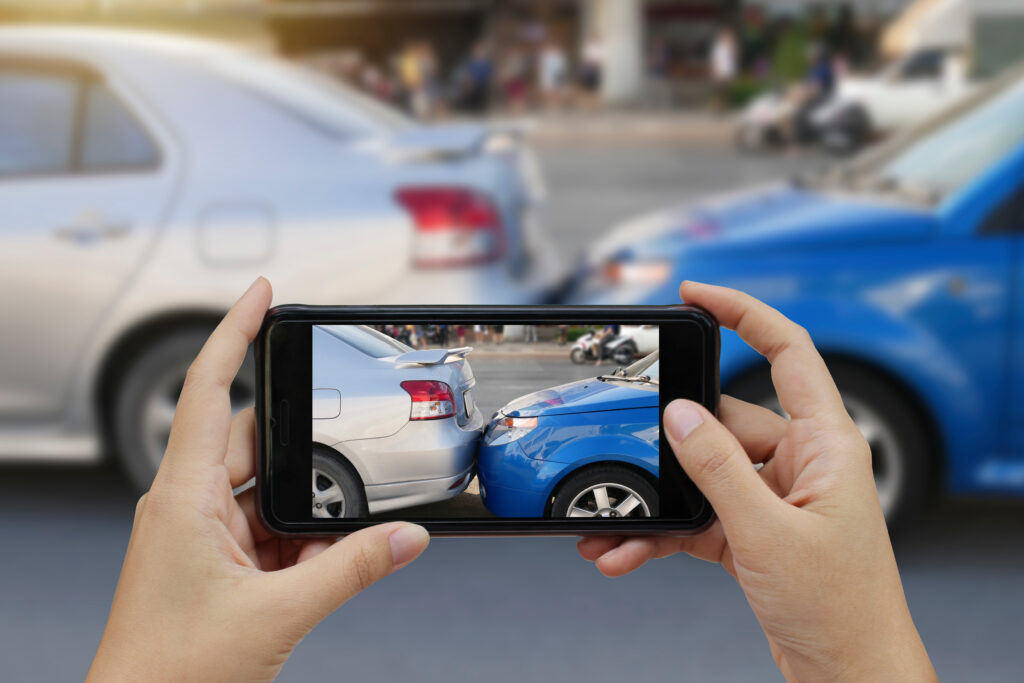How Is Fault Determined for a Car Accident in Georgia?

Have you recently been involved in a car accident in Middle Georgia? If so, you may be wondering how fault is determined following the wreck.
There is a specific set of laws and procedures in Georgia for determining fault in a car accident. If you’ve been injured in a car accident in Macon or anywhere in the Middle Georgia area, it’s important to know how fault is determined, what evidence matters most, and when to contact an experienced firm like Buzzell, Welsh & Hill to protect your rights.
Georgia Is a “Fault” State When It Comes to Automobile Accidents
Georgia operates under a fault-based insurance system, meaning the driver responsible for causing the accident is also responsible for paying for the resulting damages. This differs from “no-fault” states, where each driver turns to their own insurance company regardless of who caused the crash.
Under Georgia’s system, the at-fault driver or their insurance company may be held liable for:
- Repairs or replacement of the victim’s car
- Medical bills and treatment costs for the victim
- Lost wages due to the victim having to miss work during recovery
- Pain and suffering of the victim
- Other accident-related expenses
Depending on the at-fault driver’s insurance policy, the carrier may be responsible for covering some or all of these items for the driver, too.
Because the at-fault driver’s insurance company typically pays these costs, determining fault accurately is critical to your claim.
Determining Fault Means Determining Negligence
In Georgia, most car accident claims hinge on driver negligence. Whether the accident involved two cars or more, it’s most likely that at least one of the drivers exhibited some negligent behavior that ultimately caused the crash. It’s crucial to find out which driver that is and the extent of the negligence.
To establish negligence, four elements must be proven:
Duty of Care
There is always a duty of care while behind the wheel. Every driver, regardless of the state they are in, has a legal obligation to operate their vehicle safely and follow all applicable traffic laws.
Breach of Duty
It must be proven that the at-fault driver violated that duty of care. Examples of breach include, but are not limited to:
- Speeding
- Texting while driving
- Running a red light
- Following too closely
- Driving under the influence
Causation
It must be proven that the driver’s breach of duty caused the accident.
Damages
It must be proven that the injured party suffered actual losses because of the accident. Losses can include:
- Sustaining injuries
- Experiencing vehicle damage
- Experiencing accident-related financial hardship
If these elements are clearly demonstrated, fault will be assigned to the negligent driver.
About Georgia’s Comparative Negligence Rule
Another thing to know about Georgia is that it relies on a modified comparative negligence rule when determining fault in car accidents. In other words, if more than one driver committed a breach of duty that led to the accident, the drivers will each carry a percentage of liability.
For example, let’s say driver A and driver B crash into each other. In the investigation phase, it’s discovered that driver A was speeding while driver B was texting and driving. Both behaviors played a part in the accident, so comparative negligence applies.
In cases like this, where comparative negligence is involved, compensation is adjusted accordingly:
- A driver can recover damages as long as they are determined to be less than 50% at fault for the accident.
- The driver’s compensation will be reduced by the percentage of fault.
For example, let’s say you are found to be 20% responsible for an accident, and you are awarded $100,000. Ultimately, your recovery would be reduced to $80,000.
Insurance adjusters and courts use this rule to allocate fault based on evidence, witness statements, and accident reports.
What Are the Common Factors Used to Determine Fault?
Fault is determined by evaluating all available evidence and testimony. Some of the most common factors considered in Georgia car accident cases include:
Police Reports
Officers often make a preliminary assessment of fault based on their investigation at the scene of the accident.
Traffic Citations
If a driver was ticketed at the scene for speeding, reckless driving, or running a stop sign, it may serve as strong evidence of fault.
Witness Statements
Independent witnesses can provide unbiased accounts of what happened.
Photographs and Video Evidence
Dash cams, surveillance footage, or cell phone photos and videos can help reconstruct the event and prove fault.
Accident Reconstruction Experts
In serious cases, specialists may be contracted to analyze the scene, vehicle damage, and road conditions to pinpoint fault.
Weather and Road Conditions
Slippery roads, poor visibility, or debris can play a role in determining liability.
An experienced car accident lawyer will gather and analyze all this evidence to build a strong case on your behalf.
What to Do After a Car Accident in Georgia
If you’ve been involved in a car accident in Macon or the surrounding Middle Georgia area, the steps you take immediately afterward can significantly affect your ability to recover compensation.
Optimize your safety, health, and rights after a wreck by following these critical steps:
Check for Injuries and Call 911
Always seek medical attention first. Even if injuries seem minor or nonexistent, serious issues like whiplash or concussions can reveal themselves later.
Contact Law Enforcement
Always request a police report. This is an essential document for proving fault and filing insurance claims.
Gather Evidence at the Scene
Take photos of the vehicles, road conditions, traffic signs, and any visible injuries. Collect witness names and contact information, if possible.
Avoid Admitting Fault
Never apologize or make statements that could be interpreted as admitting guilt. Fault should be determined by investigators, not drivers.
Notify Your Insurance Company
Report the accident promptly, but be cautious with what you say. Insurance adjusters often look for ways to minimize payouts. When in doubt, speak to a lawyer about approaching your insurance company.
Contact a Local Personal Injury Attorney
Before signing anything or accepting a settlement, speak with a Macon car accident attorney at Buzzell, Welsh & Hill. Our personal injury attorneys are skilled and experienced in tackling car accident cases and can help you navigate Georgia’s fault laws as you fight for fair compensation.
The Benefits of Partnering With a Car Accident Attorney
Even if fault seems obvious, insurance companies may dispute claims or try to shift blame, leaving you with far less compensation than you should receive. The skilled attorneys at Buzzell, Welsh & Hill can help by:
- Investigating the accident thoroughly
- Gathering police reports, medical records, and expert opinions
- Negotiating directly with insurance companies
- Representing you in court, if necessary
The attorneys at Buzzell, Welsh & Hill have decades of experience handling personal injury and car accident claims across Macon and Middle Georgia. We have an in-depth understanding of how Georgia’s fault system works and how to protect your rights at every stage of the process of seeking fair compensation.
Talk to a Macon Car Accident Lawyer at Buzzell, Welsh & Hill Today
If you’ve been injured in a car accident and are unsure who’s at fault, don’t try to handle it alone. The legal process can be complex, and insurance companies will do everything they can to act in their own best interest, not yours.
Instead, choose the team at Buzzell, Welsh & Hill to represent you. It’s our mission to help you understand your options, prove fault, and pursue the compensation you deserve.
If you’ve experienced a car accident in Macon, GA, or the greater Middle Georgia area, call Buzzell, Welsh & Hill at 478-217-2072.
Our experienced Macon personal injury lawyers specialize in car accidents and offer free consultations to help you pursue justice. Contact us so that our team can review your case, answer your questions, and guide you toward recovery.
Tell us about your case today by calling 478-217-2072
Related Articles
- What Should I Do Immediately After a Car Accident?
- Uninsured Motorist Coverage in Georgia: What You Need to Know
- The Impact of Traffic Violations on Auto Accident Claims in Georgia
- How to Seek Compensation After a Hit and Run
Recent Success Stories

